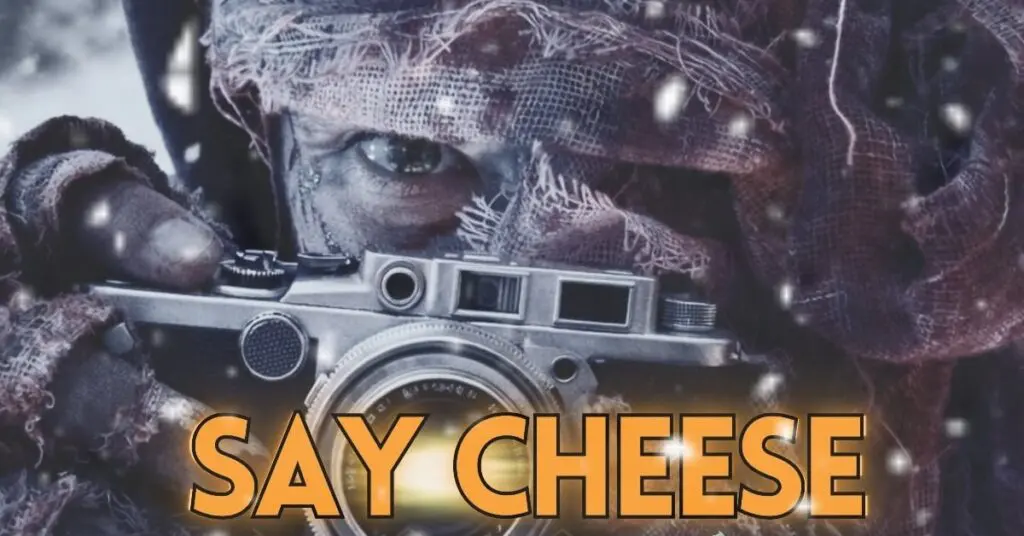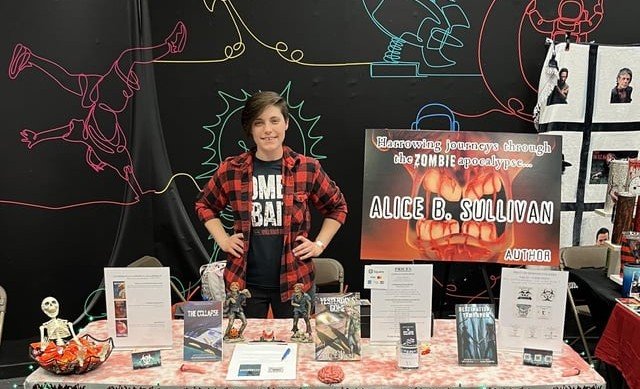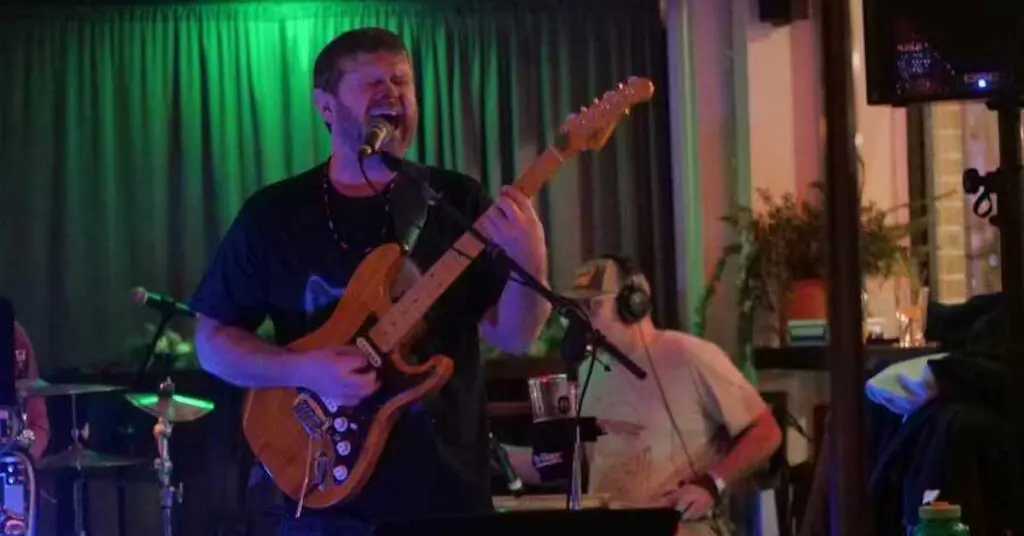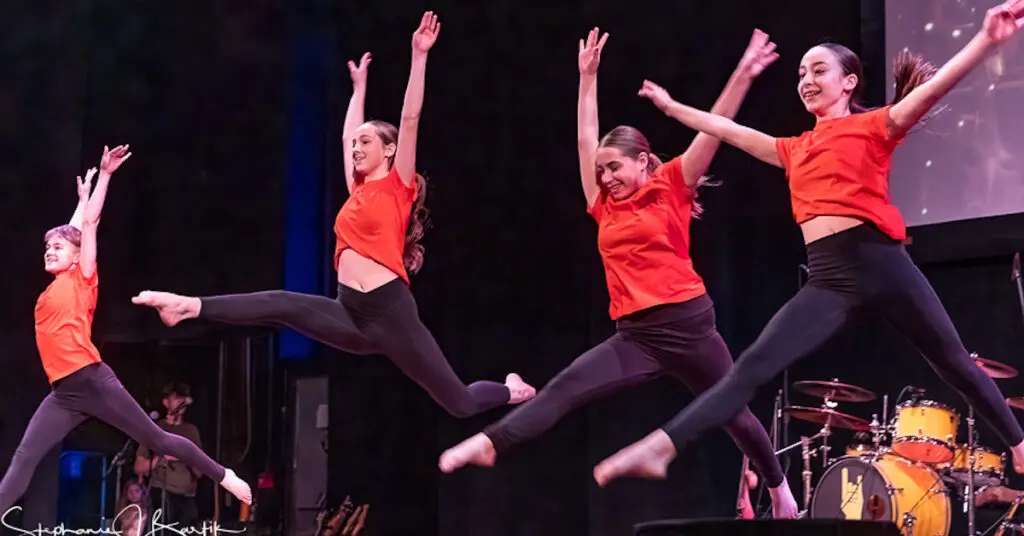John Sparrow – Violent Femmes – Interview
By Staff on December 22, 2024
John Sparrow – Violent Femmes – Interview and photograph by Rachael Skinner.
John Sparrow is the incredibly talented percussionist for Violent Femmes. Sparrow’s eccentric and jazzy flair adds an extra touch to the incredible music of Violent Femmes. Sparrow had earlier been integral to the Femmes backing band, “Horns of Dilemma,” prior to becoming their percussionist. This past summer, I experienced Violent Femmes at Beak & Skiff Apple Orchards in LaFayette, NY, and had the honor of capturing their entire live performance. Recently, I caught up with John, and he answered some questions I have been curious about. I am excited to share with you what we discussed.
RRX: How old were you when you first discovered your passion for music, and what was the first song you learned to play?
JS: My passion for music preceded me starting learning drums, first of all. I was 14 when I started to learn drums. However, I have been passionate about music since I was a young child. The first song I learned to play was “Zivili Brace, Zivili Sestra” by Frank Yankovic. That is on his “70 Years of Hits” album.
RRX: What is your most fond memory of learning how to play the drums with your father?
JS: My fondest memory of learning to play from my father was the six weeks it took me to learn how to play a double stroke roll properly. I practiced on books and magazines before he let me start on the snare drum. He told me that the double stroke roll is applicable in so many rudiments and drum patterns on the kit. Once I learned how to play on ONE drum, he set up the whole kit.
RRX: What do you do to get into your creative zone to write and compose your music?
JS: I prefer to act on creative ideas as they come to me and strike while the inspiration hits. When I’m in a situation to create with others that is planned, and/or not my concept, that’s different. In that case, I will pick the other people’s brains to find what they have as a goal or where their inspiration came from.
RRX: Can you share your initial experience as a musician that made you recognize this as your life’s calling? What was the most profound inspiration that compelled you to embark on this musical life path?
JS: My father was not a handy guy. My brother-in-law did a lot of the repairs around our house. When my dad pulled his drums out of storage when I was 14 to clean them up, I was intrigued. I then thought that if there was anything my dad could pass on to me, it would be the drums. I asked him if he could show me a few things on the drums and that’s when it started. My life calling came from a gig I was hired to do with a country band. They asked me to do a weekend of gigs in Milwaukee. I packed up all my drums for the first time and loaded up my parents’ car to go to the gig. Right when we were about to leave they called and said they actually had another drummer and I didn’t need to come. I went to my bedroom and was devastated. I cried all night, but the next day I was so pissed that I set up my kit and told myself that nothing will stand in my way of playing drums in a band again. I knew at that moment that this was what I wanted in life.
RRX: What musicians helped influence your unique drum techniques and styles of music?
JS: Obviously, my dad was my first influence on the drums. Through his guidance, I got into Gene Krupa, Buddy Rich,
Louie Bellson, Joe Morello, etc. Then through my self-discovery … I found Tim “Herb” Alexander, Dave Abbruzzese, Carl Palmer, Neil Peart, Bill Bruford, Steven Adler, Steve Smith, Ginger Baker, Mitch Mitchell, John Bonham, Jimmy Chamberlin, Jeff Hamilton, Mick Fleetwood … I could keep going for a while.
RRX: What were your favorite bands / musicians growing up?
JS: Growing up and the start of my drumming path are two different things, as I mentioned. Prior to playing drums, I loved the music my parents and sister listened to. My dad was an “older” dad, so he listened to a lot of big band jazz and polka. My mom was a ‘50s and ‘60s fan. My mother also loved Blondie and would sing “One Way or Another” and chase me around the house. Years later, when Violent Femmes played with Blondie, I watched her leave the stage, and she winked at me. I immediately called my mother to tell her that story. My sister is 10 years older than me, so aside from beating me up, she had a huge influence on me listening to what the kids call Yacht Rock now. My sister also liked early ‘80s pop, and I credit her for being just as much of an influence as my parents. As I grew up, through my friend group, I was exposed to Metallica, Guns N’ Roses (Steven Adler), etc. Then I discovered
Hip-hop artists such as Public Enemy, Run-DMC, Big Daddy Kane, Kwame, Special Ed, Mellow Man Ace, NWA, Ice-T, Eric B and Rakim, etc.
RRX: What was the experience like, transitioning from playing cajon with the Horns of Dilemma, to becoming a long-term member of the Violent Femmes?
JS: My friend David Gelting, who played bass with me in our own rock band, had started playing with Brian Ritchie from Violent Femmes. For reference, Brian plays shakuhachi (Japanese flute) and just moved back to Milwaukee. David and Brian had been trying out other drummers but didn’t settle on one. I snuck my way into jamming with them, and we all clicked. Through that group, Brian and I became friends and hung out a bunch. He eventually wanted to add a little more low-end, or punch, to the rhythm section for VF and invited me to do a weekend run with the band playing cajon. One thing led to another: I played well and started touring full-time with Violent Femmes in 2005 as a result. In addition to cajon, I was the drum tech and crew guy as well. As time went on, Victor would eventually leave the band, and we had a replacement drummer for a short time. After that transitional period, I would take over all the drum roles in 2016.
RRX: Can you explain to me how you decided to commit to adding the Weber Grill to a part of your drum kit? What is the story of the PBR bucket that was underneath the grill?
JS: During the time that we had a fill-in drummer after Victor, we had a show at the Montreal Jazz Festival. That afternoon, we had a TV spot to do, but the drummer missed his flight, and I needed to play drums. The band was sitting backstage, running over the songs, and Brian spotted a Weber grill in the corner. I assume the grill was part of a cooking segment the TV station had run previously. Brian looked at the grill and said, “You should play that thing.” If anyone knows the musical genius of Brian Ritchie, you don’t question his ideas. In my case, I started playing drums on one drum, or on a book/magazine, so this was not a big deal to play on a grill. The TV spot went over very well and sounded great. Fast forward to the departure of the fill-in drummer for Victor, and I chatted with Brian about the plans moving forward. When he decided that I would take over the drum spot, he said bring your drums, and you MUST bring the Weber grill. That was exactly what we did. But my first actual performance as the new drummer was on The Late Show with Steven Colbert prior to our Australian tour. I just played the Weber that night on national TV. That night, Brian and I watched the show in my hotel room and watched social media blow up in confusion. It is truly the spirit of Violent Femmes. Not contrived, it’s the working of Brian Ritchie’s musical genius. The PBR can was originally a cooking bowl to hold my stage water. We eventually picked up the PBR bucket along the way as a replacement.
RRX: Tell me about your drum setup. What are you drumming with mainly, and why did you choose these particular pieces to be a part of your kit? How do you feel that your unique style has added to the magic of Violent Femmes?
JS: I went through a number of drums before settling on my current kit. My setup for the past consists of drums made by A&F drum company from Austin, TX. Violent Femmes are known for brushes on a snare so I discovered the shotgun 18” snare drum that A&F makes, and that became my go-to. I use the Weber grill, obviously, and a small pancake-style floor tom. For many years, I haven’t used cymbals, but now we are playing “Hallowed Ground” in its entirety, so we decided to bring a cymbal back into the picture. The brushes I use are by Innovative Percussion (Jeff Hamilton model). I grew up listening to Jeff’s drumming; my dad and I loved his brushes and sticks. Aside from being a sweet person and player, Jeff has a design that works the best for my playing with Violent Femmes. My style is jazz-based, ultimately, and that is where my swing comes from. Violent Femmes has so much swing in the music that gives it a special swagger and attitude … I tap into my Gene Krupa influence to help support that Femmes swing. To support the punk rock and rock side of Violent Femmes music, I play a bit more snappy and driving, using my Buddy Rich influence. All the experiences playing other styles of music in my career leading up to playing with the Femmes come into play, obviously.
RRX: Do you have any other creative/artistic outlets that are a part of your life aside from music?
JS: That is a great question … I take an artistic approach to everything I do outside of playing music. I was asked during the pandemic to build a Zen garden with a couple friends. Much like a band, there was a lot of collaboration and design that went into that project. The physical aspect of digging and moving heavy stone was not much different than the physical and cardio that goes into playing drums. I love to grill all year and the creativity that goes into flavoring and how you grill is, again, like playing a song and locking into a good groove. Almost everything in life has an element of improv and creativity, I think.
RRX: How frequently do you rehearse with the Violent Femmes crew before hitting the road for a tour?
JS: We don’t rehearse, per se. We might go over a section of a song before a show or run through a song we haven’t played in a long time. That usually is in the dressing room before the show.
RRX: What’s the wildest thing you’ve witnessed at a show while touring?
JS: I’m going with the first thing that comes to mind. I believe we were playing an outdoor stage at a horse racing track. The “stage” was a raised area above the crowd, about 30 ft. There was a glass wall in front of us on stage. During our set, a fan made their way onto the stage area and was dancing. Security quickly tried to remove the fan from the stage. However, the fan noticed security and decided to climb over the glass wall and jump down into the crowd. This was not a typical rock show where fans could just jump back into the house. I can’t recall what happened to the fan, but I am very certain they injured themselves, unfortunately. That incident sticks in my mind as “wild.”
RRX: What are some key pieces of advice you would give any musician starting their journey early on to help encourage them on their path?
JS: My advice to any musician starting their journey?
F*cking work! Work hard at your craft, number one. Marketing can be a drag, but remember, we chose this path, it’s part of the gig. If you wake up at 2 a.m. and have an idea, go with it (within reason). Successful people don’t have typical office hours. Lastly, don’t get too big for your britches.
RRX: What does the definition of success mean to you?
JS: My (personal) definition of success was and is … making a living, seeing the world, learning other cultures, living a happy life, and providing for my family by playing and creating music. I would also view personal success as inspiring other musicians and/or artists.
However, I also want to inspire people to get up every morning and go to a factory job, coffee shop job, or deliver auto parts (which I did). I want to inspire non-artists to be the best they can be, even if it’s not a creative profession, or to just let loose on the weekend and have fun. It’s amazing how the arts are needed to inspire people regardless of their life path.





 RadioRadioX
RadioRadioX